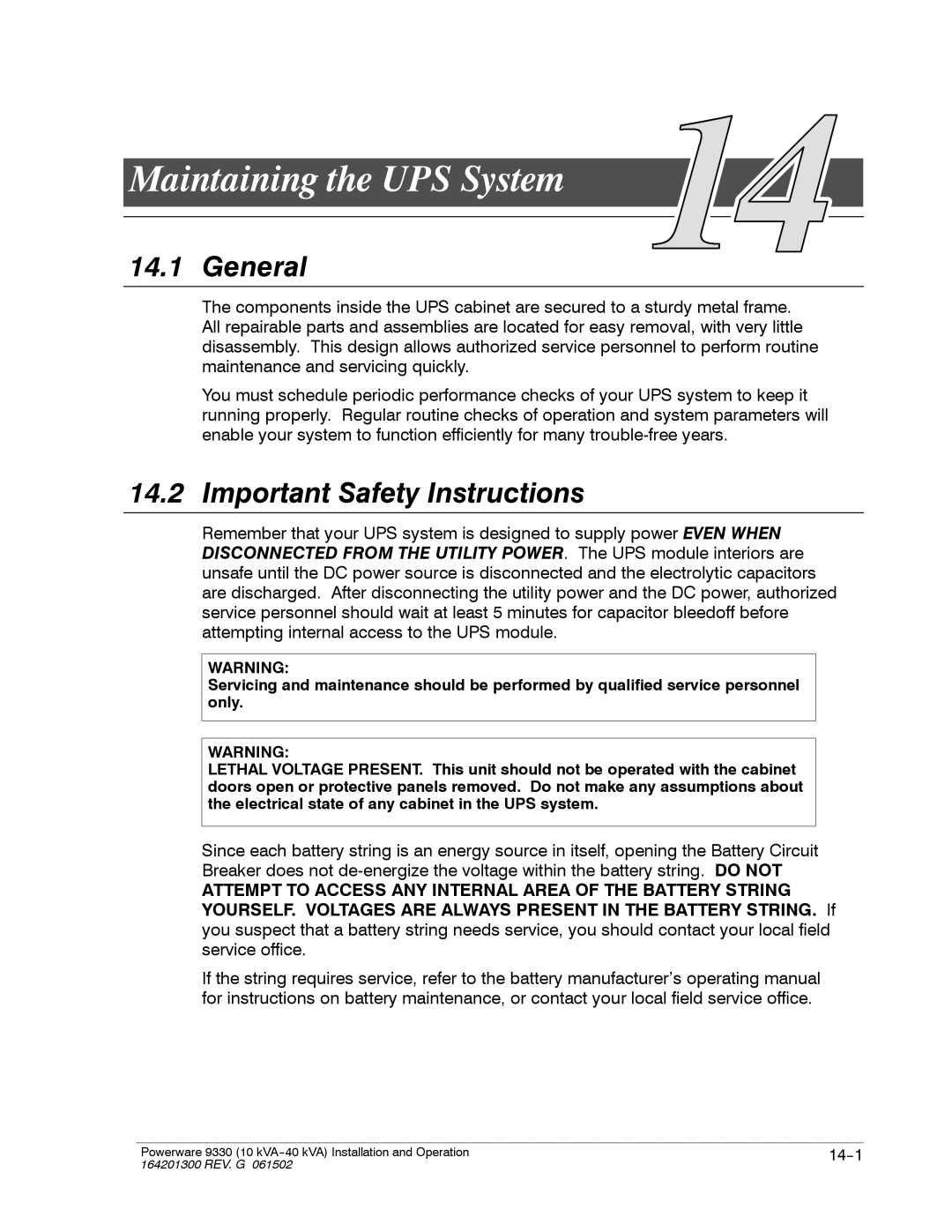
Maintaining the UPS System
14.1General
The components inside the UPS cabinet are secured to a sturdy metal frame. All repairable parts and assemblies are located for easy removal, with very little disassembly. This design allows authorized service personnel to perform routine maintenance and servicing quickly.
You must schedule periodic performance checks of your UPS system to keep it running properly. Regular routine checks of operation and system parameters will enable your system to function efficiently for many
14.2Important Safety Instructions
Remember that your UPS system is designed to supply power EVEN WHEN DISCONNECTED FROM THE UTILITY POWER. The UPS module interiors are unsafe until the DC power source is disconnected and the electrolytic capacitors are discharged. After disconnecting the utility power and the DC power, authorized service personnel should wait at least 5 minutes for capacitor bleedoff before attempting internal access to the UPS module.
WARNING:
Servicing and maintenance should be performed by qualified service personnel only.
WARNING:
LETHAL VOLTAGE PRESENT. This unit should not be operated with the cabinet doors open or protective panels removed. Do not make any assumptions about the electrical state of any cabinet in the UPS system.
Since each battery string is an energy source in itself, opening the Battery Circuit Breaker does not
ATTEMPT TO ACCESS ANY INTERNAL AREA OF THE BATTERY STRING YOURSELF. VOLTAGES ARE ALWAYS PRESENT IN THE BATTERY STRING. If you suspect that a battery string needs service, you should contact your local field service office.
If the string requires service, refer to the battery manufacturer’s operating manual for instructions on battery maintenance, or contact your local field service office.
Powerware 9330 (10 | |
164201300 REV. G 061502 |
|
